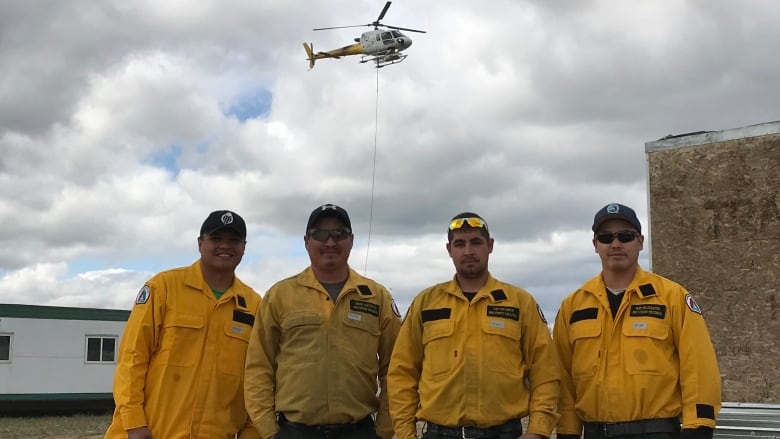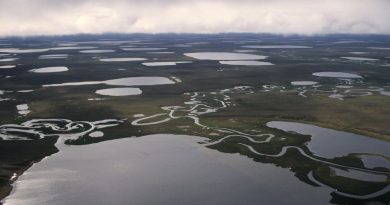Wet weather in Canada’s Northwest Territories helps free up firefighters for Alberta wildfires

Cool and wet weather in the Northwest Territories has helped free up local fire crews to fight wildfires in northern Alberta.
Twenty firefighters and seven planning and supervising staff left for south of the N.W.T. border on Monday, explained Richard Olsen, the fire operations manager for the territory’s Environment Department.
Additional equipment was sent down too — like hoses, pumps, water bladder tanks and initial attack kits. An air tanker group is also stationed in Fort McMurray, Alta., to help, Olsen said.
“The N.W.T. … had a really good reprieve from the fire environment with all the rain and cool weather that have come in,” said Olsen.
Another round of crews — 20 firefighters and more fire supervision and planning staff — are gearing up to head south in the next few days if the Alberta government still needs help, said Olsen.
The crews from the territory’s South and North Slave regions will be there for two-week stints.
“We were holding back a little bit just to make sure we didn’t end up in the same situation as Alberta,” said Olsen.
“It actually looks like we probably [won’t] be too, too worried about fires until the middle of June.”
Given the rain, Olsen said the territory likely has about a seven to 10-day period before the risk of fire increases.
“And in worst-case situations, we can actually request Alberta return our resources,” he said, adding that it doesn’t seem likely.
‘Very trying situation’ for neighbours
The Chuckegg Creek fire is the largest wildfire in Alberta, at close to 2,800 square kilometres in size and remains out of control.
Late last month, the wildfire near Steen River, Alta., closed Highway 1, cutting off traffic in and out of the N.W.T. for a few days. Around 2,300 firefighters from across the country are doing their best to corral fires burning across northern Alberta.
“It’s a very trying situation for the government of Alberta and the fire responders. I think they’re doing a great job,” said Olsen.
“Knowing that they’re going through a very difficult situation and the impact on the people that have been evacuated or threatened … we certainly want to do what we can to help them out.”
Olsen said the territory also sent a few fire staff to help with fires in Yukon and Peace Point, Alta.
Related stories from around the North:
Canada: Northern Alberta wildfire cuts rail link between Canada’s central Arctic and the south, CBC News
Finland: Better wildfire & agriculture management among recommendations from Arctic Council black carbon expert group, Eye on the Arctic
Russia: Forest fires rage across Barents region (July 2018), The Independent Barents Observer
Sweden: Study on Swedish wildfires shows how to make forests rise from the ashes, Radio Sweden



